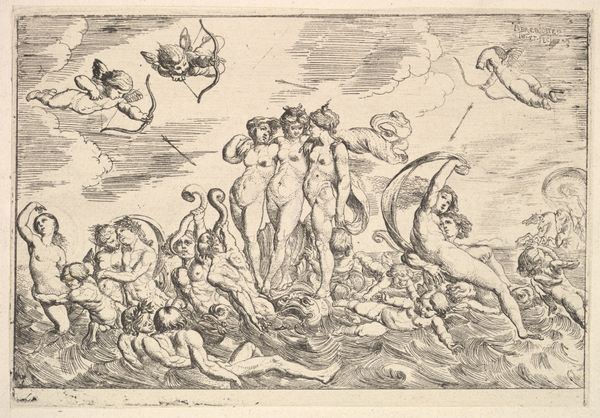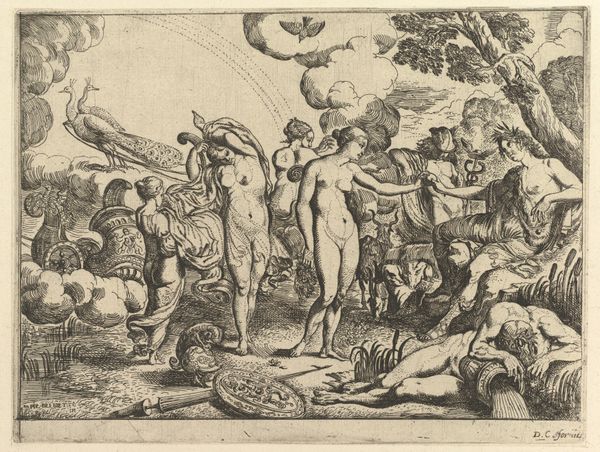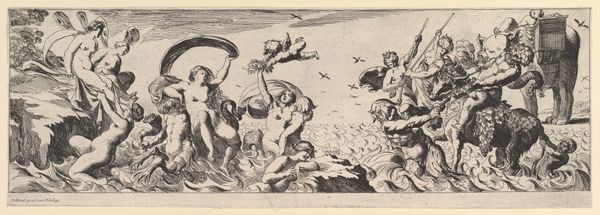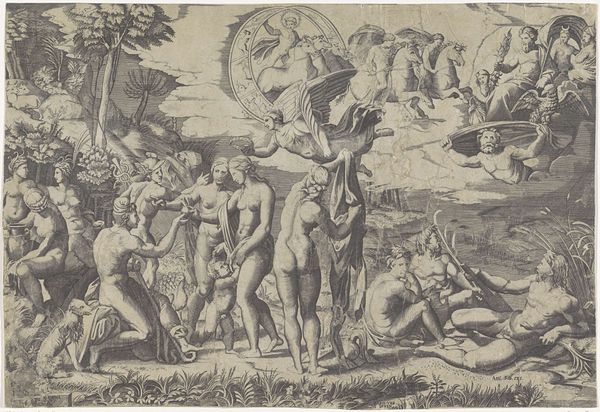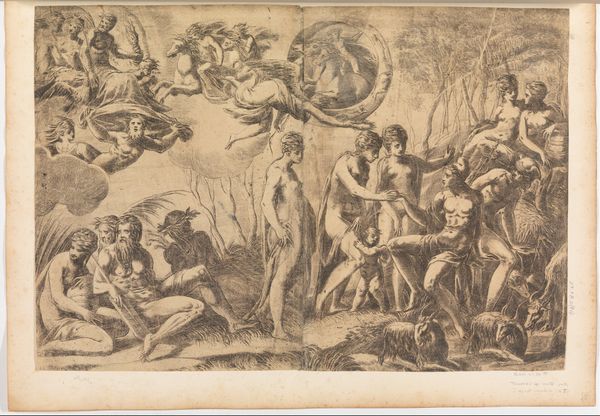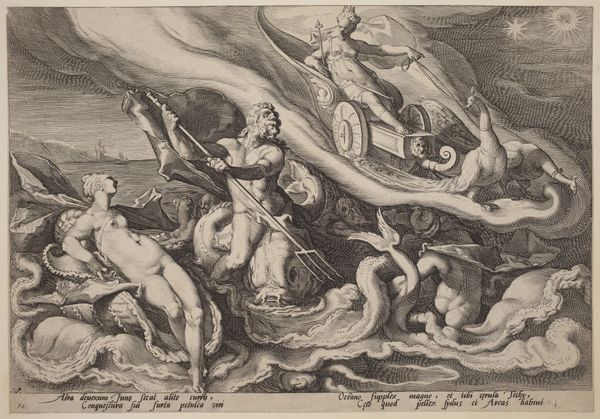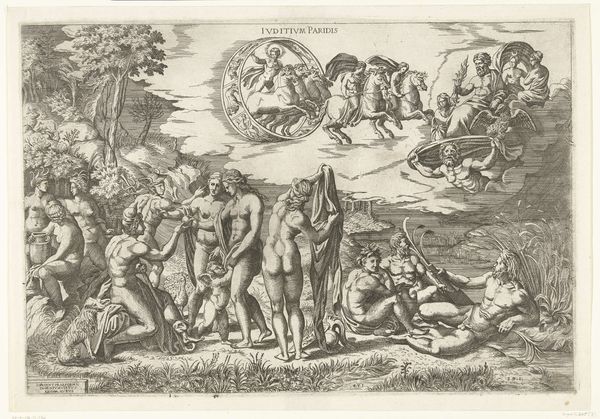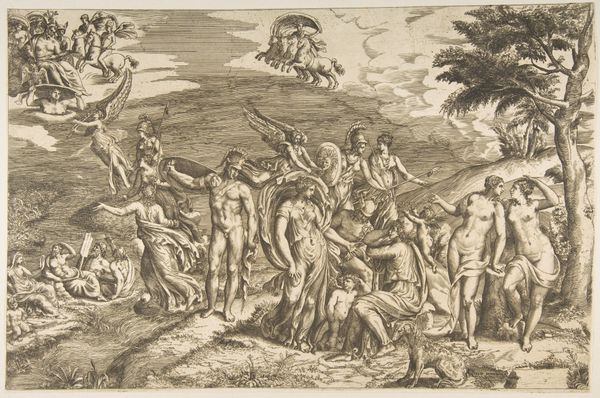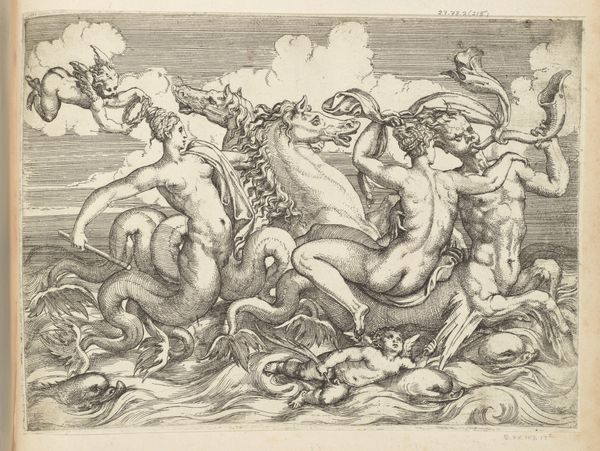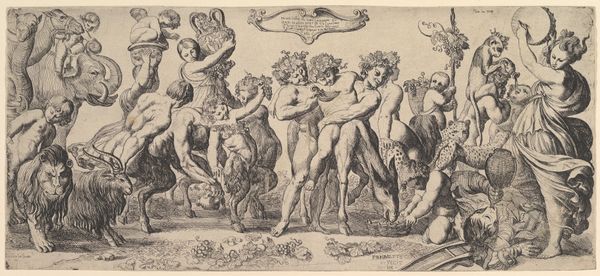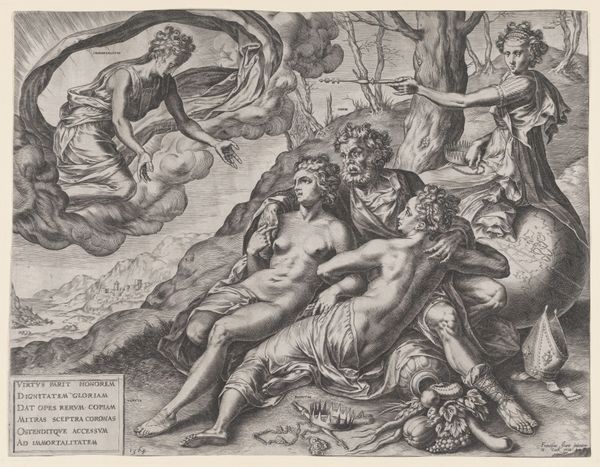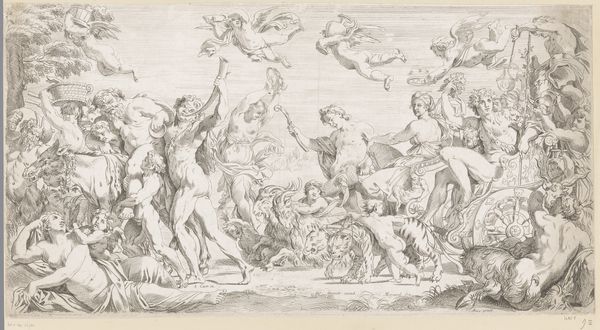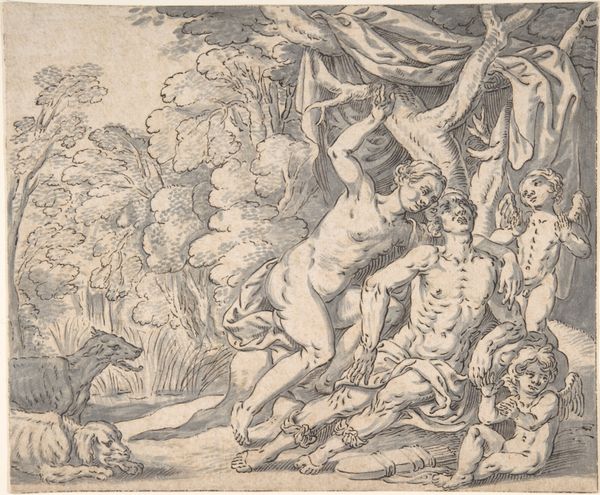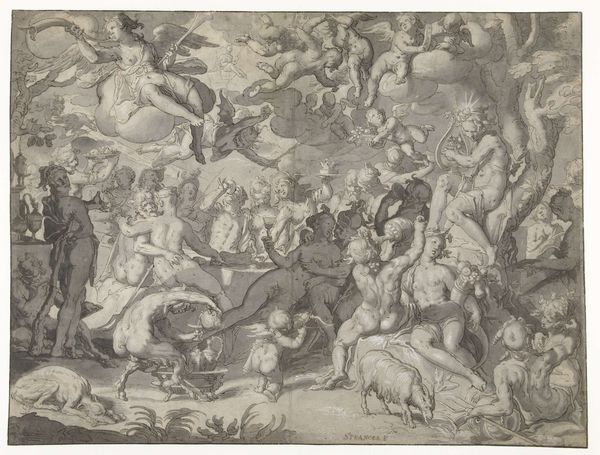
drawing, print, etching
drawing
allegory
baroque
pen drawing
etching
figuration
nude
Dimensions: plate: 5 3/4 x 8 3/4 in. (14.6 x 22.2 cm) sheet: 6 1/16 x 8 7/8 in. (15.4 x 22.6 cm)
Copyright: Public Domain
This is Pierre Brebiette's "Venus on a Chariot", made in the 17th century with etching. The image is made from a metal plate, likely copper or zinc, which the artist would have covered with a waxy, acid-resistant ground. The design was then scratched into the ground, exposing the metal beneath, and the plate submerged in acid. This process bites the lines into the plate, which are then inked and printed onto paper. Look closely, and you'll see how the etched lines vary in thickness and depth, creating a range of tones and textures. This was achieved by varying the amount of pressure applied when scratching into the ground, or by repeated acid baths. The printmaking process allowed Brebiette to reproduce the image multiple times, making it more widely accessible. In this way, printmaking democratizes images, allowing a wider audience to participate in and consume artistic ideas. It bridges the gap between the artist's studio and the public.
Comments
No comments
Be the first to comment and join the conversation on the ultimate creative platform.
